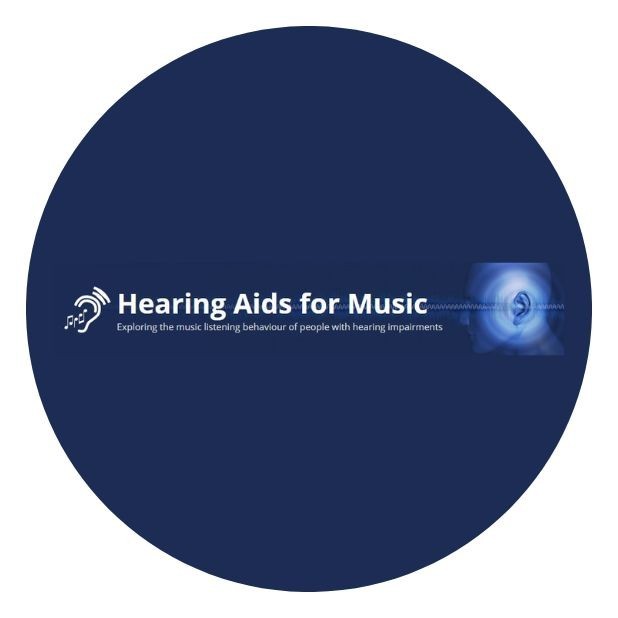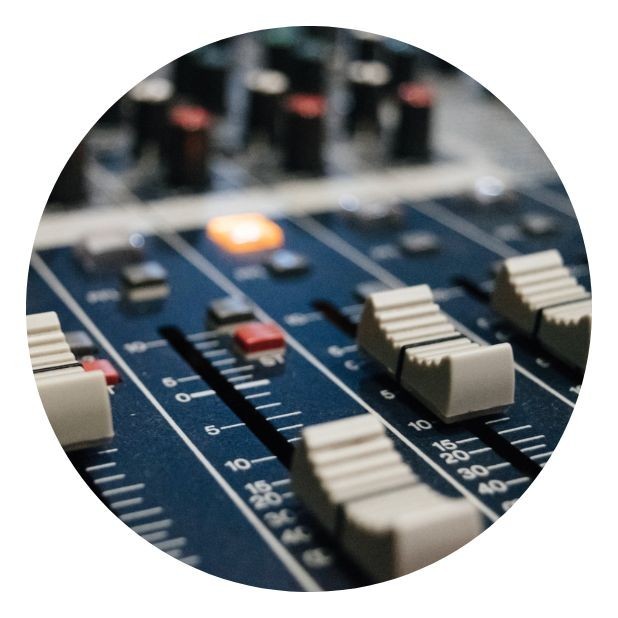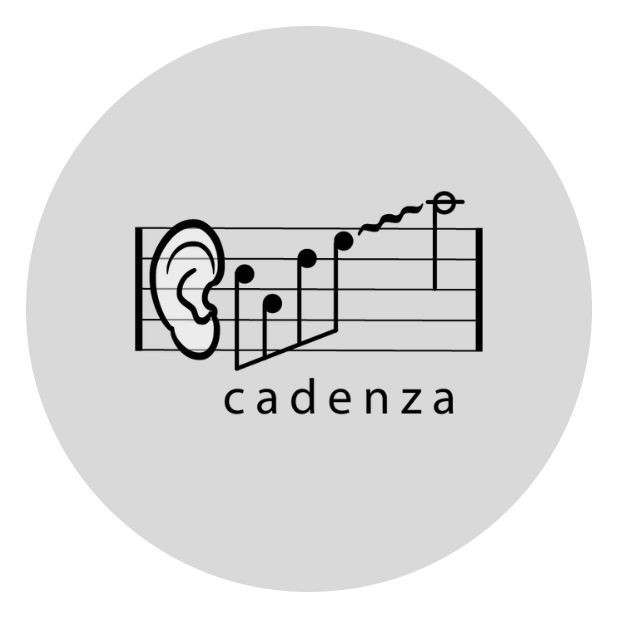
MEET PROF. ALINKA GREASLEY,
Principal Investigator & Professor in Music Psychology at the School of Music at Leeds
It’s a Thursday afternoon and Professor Alinka Greasley speaks easily over Zoom. She has a way of talking that captivates you, helping you to understand the complex nature of the topic. Making the scientific objectives, research processes and hopeful outcomes exciting and relative. I guess it’s her superpower.
This is a relief, as my knowledge is rather limited unlike my interest in this research project that is current, very much needed and one I will personally enjoy seeing develop.
We have virtually met once before to discuss this interview in its infancy but this afternoon we are talking about her current research project, “Cadenza”. Focusing on machine learning challenges to transform the music experience for those with hearing loss. I begin by congratulating her on being awarded a grant to fund this research project, which started in July 2022 and will roll out over the next four or so years. "It took a while, but we eventually got it" she smiles, relieved, as she takes the compliment.
I ask her about her objectives for this focused research and the scientific legacy she wants to leave behind that will hopefully instigate further research. "This project is designed to develop new innovative signal processing strategies for music. It has developed from the findings from my own hearing aid and music research and that of others". It was such research that Professor Alinka Greasley recognised that hearing aids aren’t as good as they could be for music processing and that we needed different signal processing strategies for music than we currently have for speech.
"One of the things that this project will look at is how we can improve signal processing for music for those with hearing loss. It’s a broad remit, as it’s not just focusing on hearing aids, but more general. For example, audio processing and object-based audio – so processing and remixing as well as hearing aid processing.
What we hope to get from this project is a better understanding of signal processing strategies for improved music listening. We’d also like to come up with new approaches for mixing and processing music for people with hearing loss. Part of this would be understanding the audio quality required for music and developing sound quality measures for music for people with hearing loss, which is very new work.
From this, we will then run machine learning challenges where entrants take music samples and apply innovative signal processing to improve sound quality. A listener panel would then rate the samples on the basis of the quality metrics we’ve developed. Both stages are needed to arrive at the novel signal processing strategies"

We talk about how there has been extensive research into the psychology of music and how those with ‘normal’ hearing engage with it. However, there is very little awareness of how music affects those who have hearing loss, particularly those who wear hearing aids. I'm left wondering why there is a lack of focused research.
"I think hearing loss has been historically overlooked in a number of disciplines. For example, psychology, acoustics or transport studies have not really taken into account the differences between people and their hearing abilities. But it's not always just about loss, some people have additional hearing sensitivities.
If we look back at 1980’s literature, there was some theorising about musical appreciation from Albert Leblanc. Back then he argued that someone’s hearing ability was crucial in this process of engaging with music and appreciating music.
Unfortunately, no one picked up from that and there was a lot of music psychology research following that didn’t take those early ideas into account. We’ve been assuming a ‘one size fits all’ concept" for years.
Hearing loss, like music, has many complexities. But what are the sort of problems people with hearing loss experience with just music?
"There are two sets of problems. One is the perceptual problems as a result of hearing loss. The second is issues that can arise as a result of limitations of the hearing aid technology. Hearing loss itself causes audibility issues, pitch perception problems and difficulty hearing out instruments. We also know from past studies that those with hearing loss find it hard to hear and understand lyrics within music.
This has a negative impact on their enjoyment, as the lyrics are integral to the meaning of the song. The hearing aid technology itself can cause further problems such as distortion and feedback when they are listening to music. Some of the advanced processing strategies that are applied for speech can also have a negative impact on music.
For example, the feedback manager is useful for reducing feedback when someone is having a conversation but can misidentify pure tone stimuli in music as feedback and suppress it"
There are many levels and types of hearing loss. Mild to moderate hearing loss and noise-induced hearing loss to name a few. In regard to hearing loss levels and types, I ask why would each level pose unique effects whilst listening to music? "I think from all the research reviewed and research that I’ve done – the more severe the hearing loss the more problematic the music perception is. Things simply become harder like the ability to hear certain tones, melodies or harmonies.
Those with severe hearing loss may start to listen more for the rhythmical elements of music more so than harmony and instrumentation which they can struggle with. In certain musical contexts, such as live concerts, someone with a mild loss may find it beneficial to take their hearing aids out because the music is loud enough and they are able to perceive the music more naturally. They have less problems in general when you compare them to those with severe hearing loss".
We follow on from that and talk about the importance that music processing is personalised.
"Cadenza is looking into personalised music listening. People listen to and appreciate music differently. Most people want to be able to hear the different instruments well, but some place more emphasis on hearing lyrics with clarity. This is why personalisation would be really valuable for those with hearing loss"

Most hearing aids have speech optimisation as the default program setting. This naturally results in a limiting music experience. In a way, it is almost as if hearing aid wearers are having to sacrifice one for the other. Speech over music, or vice versa.
"I don’t think it’s a case of sacrificing, it’s just that hearing aids have been designed specifically for speech perception. They are increasingly sophisticated for that purpose.
Music programs have been developed, but they are at an early stage of development because there hasn’t been enough research. It isn’t a one size fits all situation, so it all comes back to the personalisation and that’s the difficulty. There is mixed evidence as to the benefits of music programs.
There’s definitely room for improvement and manufacturers are working on it, so rather than either or –, it’s just about developing a greater understanding of what is needed".
We know that music and speech are two quite different things. Music involves more complex ranges of volume and frequency. Including soft, loud, high and low, which is a challenge for hearing aids. However, even though audio signal processing is constantly being researched and developed, it continues to disregard people with hearing loss.
"It’s strange that the audio world, along with audio signal processing, hasn’t taken into account the needs of those with hearing loss fully. It comes down to the assumption that everybody has normal hearing. That’s been a very prevailing normative assumption, which hasn’t helped the research agenda. We are hoping to shift focus with our new project".
Along with shaping society, bringing people and cultures together - music is important for our overall health and well-being. Professor Alinka Greasley is a Chartered Psychologist with the British Psychological Society, a Fellow of the Higher Education Academy; and a member of the Society for Education, Music and Psychology Research.
I also found out that she is a pianist, violinist and DJ. I ask how music can support challenges in mental health, health and social care and isolation in the hearing impairment community.
"As a researcher specialising in music listening and preferences, I’ve been in the fortunate position to spend many years researching why music is important to them and what it does for them and time and time again people say that it has such a positive impact on their lives.
Energising them to engage in activities, evoking memories, emotional and mood regulation and pleasure. Music is a tool that fulfils many different functions. And it’s not just listening, music performance has many positive health and well-being benefits for people. It facilitates social interaction and communication, development and an important source of social activity for young and old alike".
I refer to a paper she collaborated on - Music listening and hearing aids: perspectives from audiologists and their patients (Greasley, Crook, Fulford 2020*). Here she stated that out of 176 hearing aid users, 76% said they found listening to music with hearing aids a challenge and 58% had never talked about music within the clinic. Out of 99 audiologists, half stated that they asked 1 in 5 (or less) patients about music and 67% said they had never had music-specific training.
Currently, music isn't routinely included in the curriculum of audiological courses in the UK, therefore there is a lack of evidence to support hearing aid fitting strategies for clinical outcomes. Even with the growth of music programmes by hearing aid manufacturers, we explore why there is still an absence of training on how to optimise hearing aids for music.
"I think speech has been a priority – and rightly so. We need to be able to communicate with each other to survive and thrive. So, it’s upspringing that has been the core work of the manufacturers. But the message that we are trying to convey with our project work is just how important music is to people and the impact it can have on their quality of life.
That’s why we are seeing this shift towards needing to address the problems in music processing. We are hoping that in time the work that we are doing may lead to some inclusion of music in the audiology curriculum. We are at a stage where we have developed some resources that we have made audiologists aware of. But there is so much more that can be done, this is just a starting point really"

As we wrap up the interview it is clear that Professor Alinka Greasley has many facets and professional strings to her bow. The level of thought, precision and dedication to her research in the past - and now with Cadenza – is off the charts.
But there is also humility and humbleness too. “I don’t pretend to know everything. I’m not an expert in all of this. My expertise is music psychology - my venture into understanding hearing loss and hearing aids only started four or five years ago. So, I’ve had a lot to learn and still have a lot to learn.
I was working with Dr. Harriet Crook (Sheffield Teaching Hospitals NHS Trust), who was the audiology expert for this music project. Without her knowledge and expertise, the project wouldn’t be what it is".
For those with hearing loss, music simply sounds different. For example, they might not be able to distinguish certain instruments, lyrics, melodies or perhaps hear a general flatness of sound. Over the years, hearing aid technology has evolved, and with it, the way in which these devices process music. It’s better, but similar to most technological advancements, it’s on a journey – and there’s a long way to go.
Cadenza is one of those research projects that simmers under the radar, but do not be fooled by its modesty. The potential magnitude of how much this study can impact the hearing loss community, hearing aid technology and shape the way those with hearing loss hear music is great. Due to this research - do not be surprised if we hear the first beats of sound that will have those with hearing loss moving, talking, reminiscing and falling in love with music all over again in the not-so-distant future.
There are various free and useful resources about hearing aids and audiologists, as well as project outputs that are available here
*Article focused on two studies exploring hearing aid wearers and audiologists' experiences of hearing device use and fitting for music in the UK.
What's included in our hearing aid prices?
Our specialist service includes:
Do not spend hundreds of pounds without getting a second opinion from us.
Please call us on 0800 567 7621
 Not only are the prices great, but the service is fantastic! Many thanks to your team.
Not only are the prices great, but the service is fantastic! Many thanks to your team.Watch Professor Alinka Greasley's Hearing Loss Video Below
Think your hearing has changed?
Other Audiology Interviews
Ask the Experts
6 Morton Lane
Walkwood
Redditch
Worcestershire
B97 5QA
Latest Launch
When we refer to a product as 'Latest Launch', we mean it is the latest to be released on the market.
New
When we refer to a product as 'New', we mean that the product is the newest hearing aid model on the market.
When we refer to a product as 'Superseded', we mean that there is a newer range available which replaces and improves on this product.
Older Model
When we refer to a product as an 'Older Model', we mean that it is has been superseded by at least two more recent hearing aid ranges.